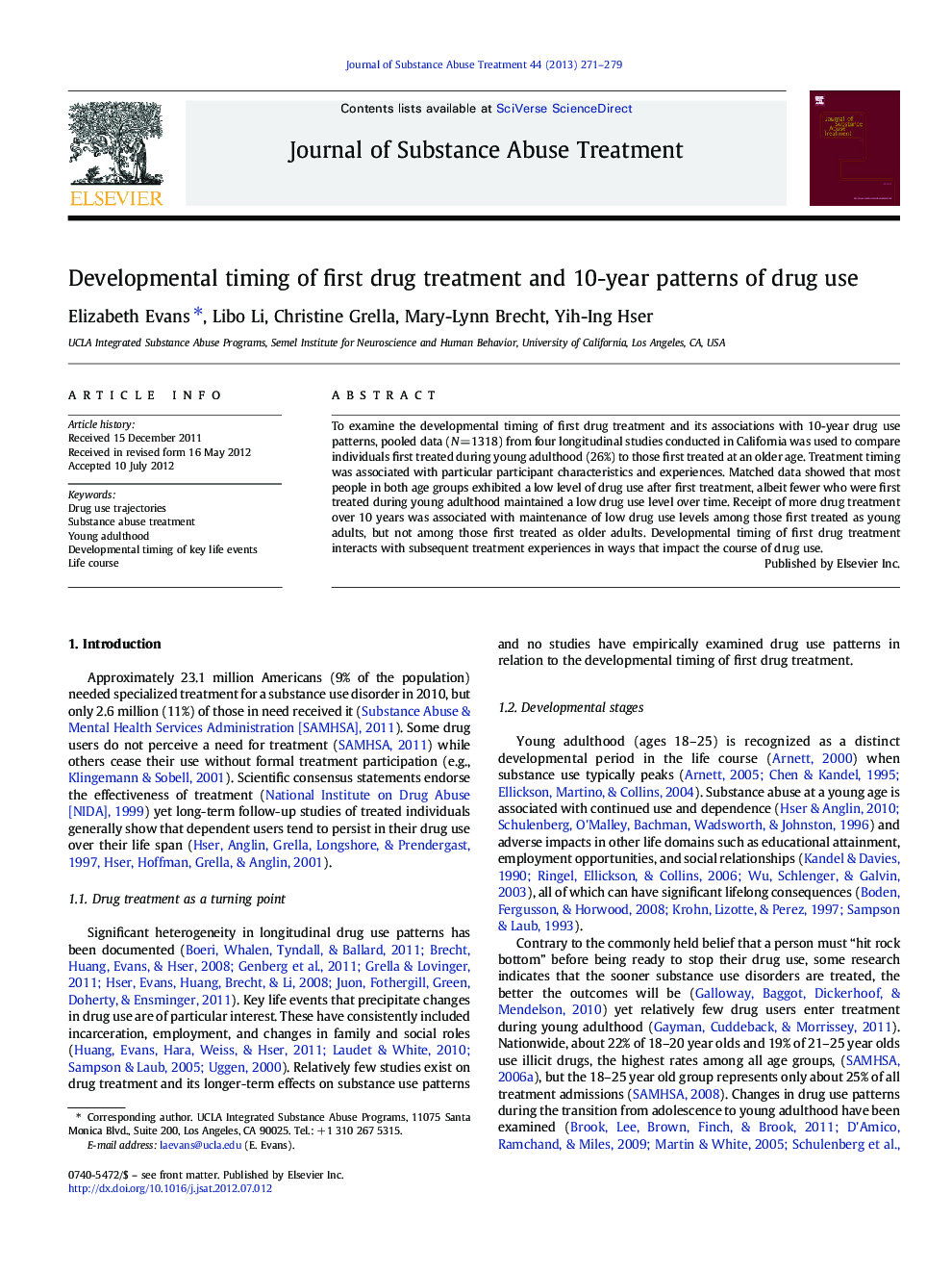| Article ID | Journal | Published Year | Pages | File Type |
|---|---|---|---|---|
| 328444 | Journal of Substance Abuse Treatment | 2013 | 9 Pages |
To examine the developmental timing of first drug treatment and its associations with 10-year drug use patterns, pooled data (N = 1318) from four longitudinal studies conducted in California was used to compare individuals first treated during young adulthood (26%) to those first treated at an older age. Treatment timing was associated with particular participant characteristics and experiences. Matched data showed that most people in both age groups exhibited a low level of drug use after first treatment, albeit fewer who were first treated during young adulthood maintained a low drug use level over time. Receipt of more drug treatment over 10 years was associated with maintenance of low drug use levels among those first treated as young adults, but not among those first treated as older adults. Developmental timing of first drug treatment interacts with subsequent treatment experiences in ways that impact the course of drug use.
